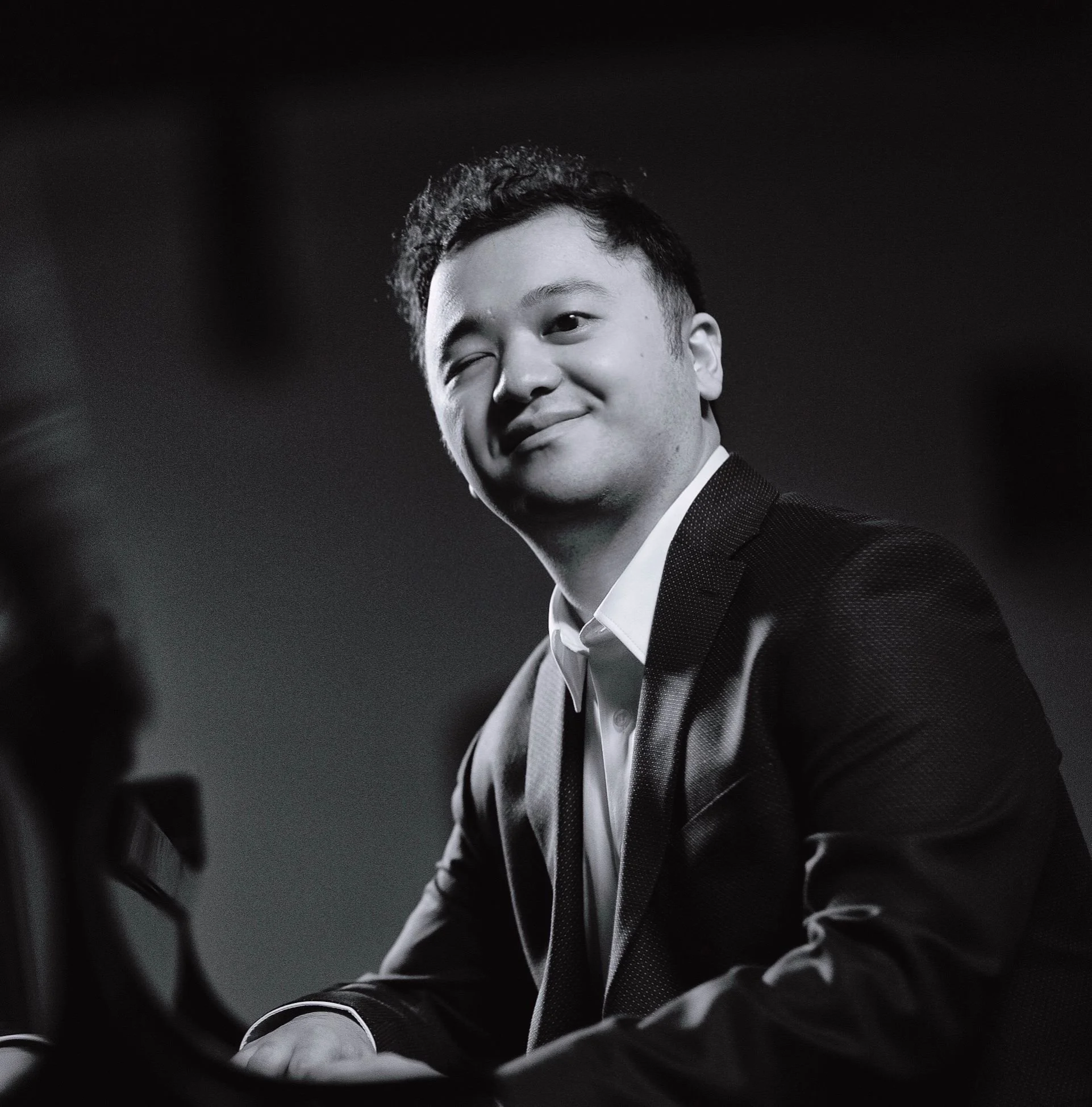
Dai Bo
Dai Bo is a prominent Chinese composer and former student of Ye Xiaogang. Blind from an early age, Dai graduated from the Composition Department of the Central Conservatory of Music, where he developed a distinctive compositional style blending contemporary techniques with profound emotional expression.
His major works include Echoes of Silence for orchestra, the chamber piece Threads of Memory, and the vocal cycle Songs of the Soul. These compositions have been performed widely in China and internationally, praised for their lyrical depth and innovative soundscapes.
Dai Bo remains an influential figure in contemporary Chinese music, actively composing and teaching while contributing to the evolving landscape of modern composition with his unique artistic voice.
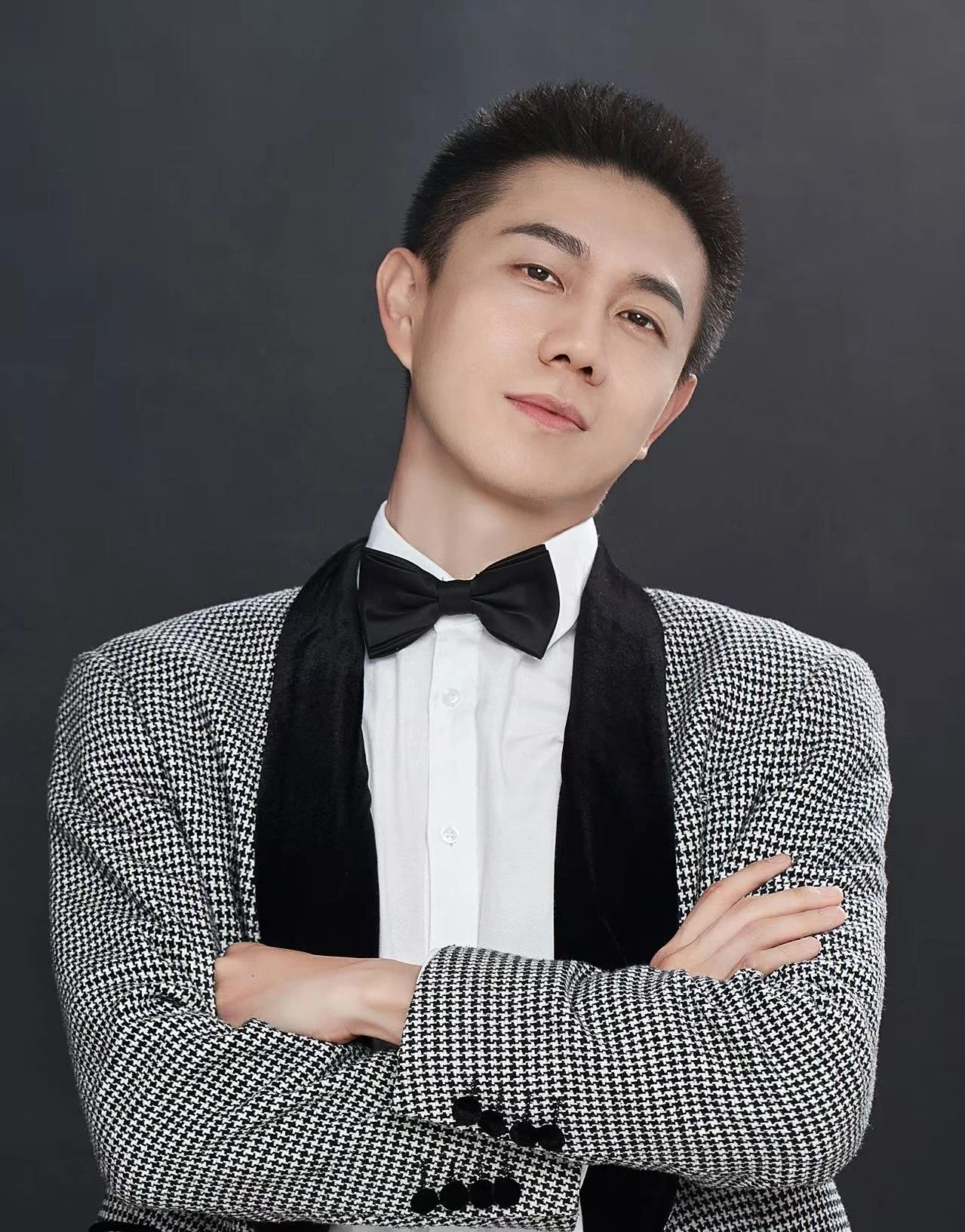
Yu Mengshi
Yu Mengshi is a Mongolian composer and lecturer in the Composition Department at the Central Conservatory of Music in Beijing. He holds a Doctorate in Composition from the Shanghai Conservatory of Music and is the first Mongolian postdoctoral fellow in composition at the Central Conservatory. He is a signed composer with Universal Edition (UE) in Austria.
Born in Chifeng and raised in Hohhot, Inner Mongolia, Yu began studying music theory under Du Zhaozhi and entered the Shanghai Conservatory's affiliated middle school in 2000. He spent 18 years studying composition at the institution.
Yu's works have been featured at the Shanghai Spring International Music Festival, the 21st Century Music Talent Development Program, and other major platforms. He has received awards from the Baichuan Composition Competition, Busan Maru International Music Festival (Korea), DUNN International Composition Competition (Serbia), and the IBLA Grand Prize Competition (Italy).
In 2023, his debut album, Five Colored Winds – Yu Mengshi's Personal Works, was released by Beijing Universal Audio-Visual Publishing House and distributed internationally.
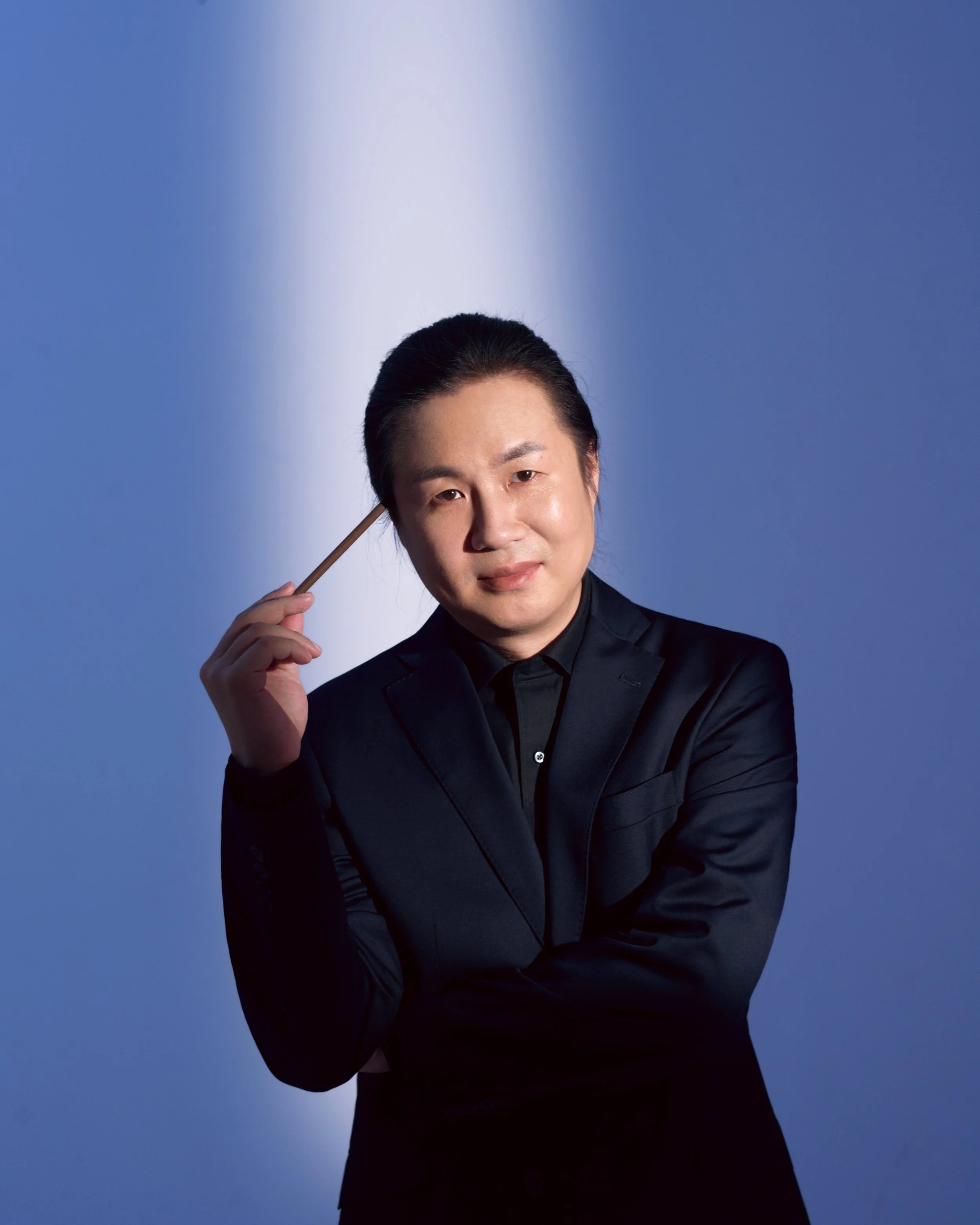
Zou Hang
Zou Hang is a professor and master’s supervisor at the Central Conservatory of Music in China, where he studied under the renowned composer Ye Xiaogang. His diverse compositional style is influenced by a wide range of musical genres, blending contemporary techniques with traditional Chinese elements.
His works have received prestigious awards, including the International Gaudeamus Prize (Netherlands) and the Best Composer Award at the China Dance Lotus Awards. Zou’s music has been featured in major national initiatives such as the China National Arts Fund and the Symphony of the Times project.
His compositions have been performed in over 30 countries, with notable appearances at venues including the Berliner Philharmoniker Concert Hall, Kennedy Center Opera House, Jazz at Lincoln Center, and the National Centre for the Performing Arts in Beijing.

Ye Xiaogang
Ye Xiaogang is one of China’s leading contemporary composers, known for blending Western compositional techniques with Chinese musical traditions. Born in Shanghai in 1955, he studied at the Central Conservatory of Music in Beijing beginning in 1978, alongside Tan Dun, Chen Yi, and Zhou Long. He later earned a master’s degree from the Eastman School of Music, studying with Samuel Adler and Joseph Schwantner.
His major works include The Great Wall Symphony, Starry Sky, Lamura Cuo, The Song of the Earth, and symphonies Songs from the Steppe (No. 4) and Lu Xun (No. 5). His music has been performed by the New York Philharmonic, Royal Philharmonic, Deutsche Symphonie-Orchester Berlin, and China National Symphony Orchestra.
Ye is currently the founding dean of the School of Music at the Chinese University of Hong Kong, Shenzhen. His influence extends across composition, education, and cultural exchange, shaping the global profile of modern Chinese music.
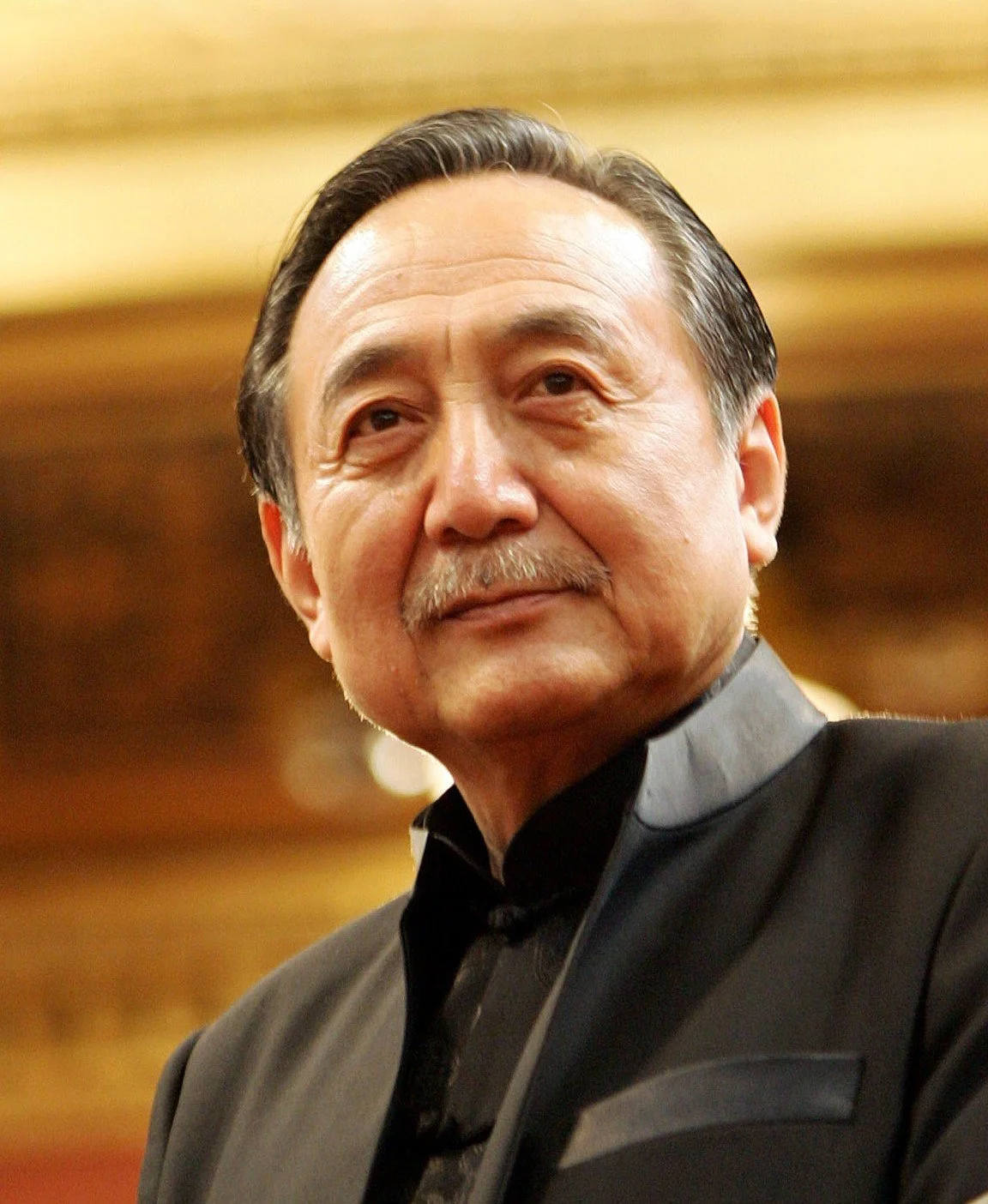
Guan Naizhong
Born in Beijing in 1939, Guan Naizhong studied composition at the Central Conservatory of Music and has since become a leading figure in contemporary Chinese music. His output includes three symphonies, sixteen concertos, numerous orchestral works, choral compositions, film scores, and adaptations of folk and traditional music.
Guan has also held major conducting posts, including Music Director of the Hong Kong Chinese Orchestra (1986–1990) and conductor of the Kaohsiung Chinese Orchestra. He has lived in Canada since 1994 and remains active as a composer and conductor across Asia and North America.
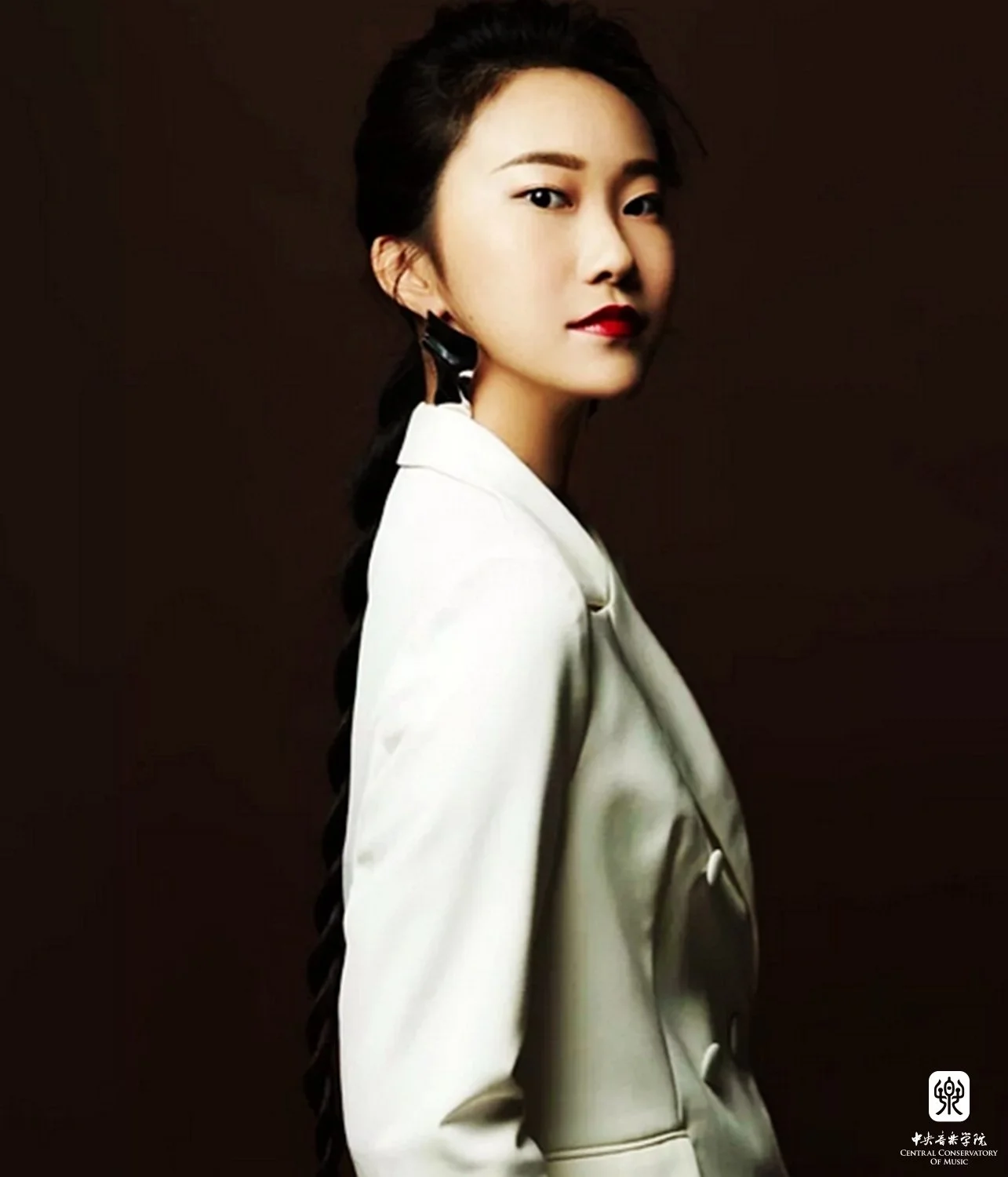
Ma Hanrui
Ma Hanrui, born in Beijing in 1998, is a doctoral candidate in composition at the Central Conservatory of Music (CCOM). She began studying composition at age 12 at the CCOM Middle School and continued her undergraduate and master’s studies at the same institution. Her principal teachers include Professors Xu Zhitong, Gong Xiaoting, Zhang Shuai, and Hao Weiya.
Ma’s music blends Eastern cultural elements with Western compositional techniques, spanning symphonic, chamber, and dance music. Her works have been performed by leading ensembles such as the China National Traditional Orchestra, Hong Kong Chinese Orchestra, Wuxi Chinese Orchestra, CCOM Symphony Orchestra, and CCOM Choir.
In addition to her compositional work, Ma is also active as a choreographer and movement director, contributing to the staging of operas, musicals, and theatrical productions. Her interdisciplinary approach reflects a deep interest in the integration of sound and movement in contemporary performance.

Wang Danhong
Wang Danhong holds a doctorate in composition from the Central Conservatory of Music (CCOM), where she now serves as a professor of composition. She is recognized as one of the most dynamic young composers in contemporary China, having received prestigious awards including the Wenhua Award, the Gold Prize for Young Composers at the Chinese Music Forum, and Best Original Work at the CCTV National Chinese Instrumental Music Competition.
In 2021, Wang was selected for China’s National High-Level Talent Support Program as a “Top Young Talent.” Her works have been featured in major cultural projects such as Symphony of the Times and Centenary – 100 Works, and she has composed for significant national events including the 75th Anniversary of the PRC, and the 2024 China International Confucius Culture Festival.
Wang’s music is known for its emotional richness, lyrical melodies, and expansive style. She composes across genres, including Chinese traditional orchestral music, symphonic works, ballet, and film scores. Major compositions includeForever Shandan, Ode to the Sun, and Impressions of Shanxi for Chinese orchestra; The Lighthouse and The Yangtze South for symphony orchestra; the symphonic choral work A Vision of Jing-Jin-Ji; and the ballet Like Flowers.







